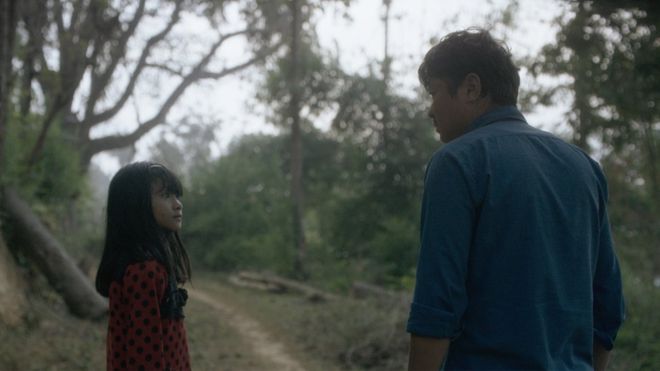A battle-hardened, world-weary but still young former Maoist guerrilla is summoned back to his native village after his father dies.
As he trudges homeward, a young boy orphaned by the war latches on to him, looking for a father-figure. Once home, the man, Chandra – or Agni (‘Fire’) to give his nom-de-guerre – comes hard up against the traditions that the Maoists have tried to overturn, and finds resistance against changing them.
White Sun, a new film from Nepal, isn’t simply a good yarn with a majestic Himalayan backdrop. It holds up a mirror to today’s Nepalese society.
The second feature by Nepalese director Deepak Rauniyar, the film opens in Nepal this week having won the Best Film award at the Singapore International Film Festival. Already screened at festivals in Venice, Toronto and Busan, it will soon show in Dubai, Rotterdam, Palm Springs and elsewhere.
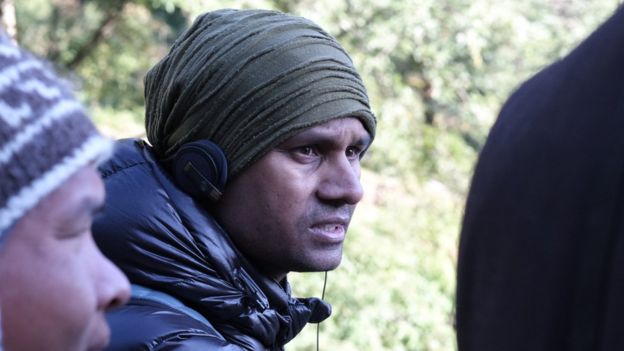
The central point of contention in Chandra’s village is how to give a respectful funeral to his deceased father, the late mayor. The taciturn Chandra (played by Dahayang Rai) clashes with his brother Suraj (Rabindra Singha Baniya), who is loyal to the now-defunct monarchy, and with the Hindu priest (Deepak Chhetri) and other traditionalist villagers, creating some very funny moments.
Modernity clashes with custom, not least when Suraj drapes his deceased father’s funeral shroud in a royalist flag. Just getting the corpse out of the house and to the river is bitterly contentious.
Director Rauniyar told BBC News he wanted to show how the bitter experience of the 1996-2006 war still permeates people’s lives.
“People like Chandra believe in change, believe traditional law is unfair to everyone else,” he said. “But people like Suraj still defend the older generation, even if they agree some rules were discriminatory. Because they [both sides in the war] had no mercy for opposing parties in the past, their past now haunts them.”
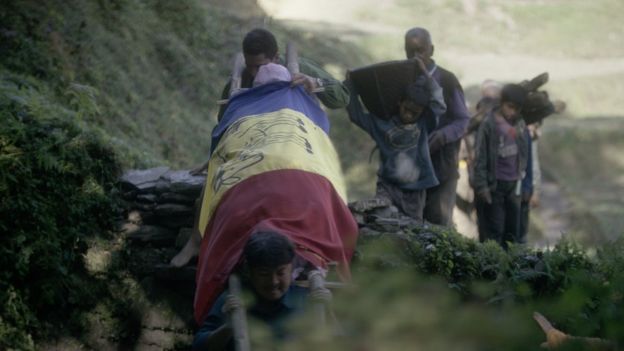
For anyone who has spent time in Nepalese villages, the film feels astonishingly real – perhaps less surprising given that many of the roles are played by ordinary rural Nepalese. Most striking among these are the two young children – the orphaned boy, Badri (played by Amrit Pariyar) and Pooja (Sumi Malla), daughter of Chandra’s wife Durga, who has been left behind for years in the village. Pooja’s paternity is unclear but she wishes Chandra is her father.
Here lies not just a human tragedy but also a political one, because under Nepal’s contentious new constitution, neither child would easily get citizenship. Badri would fail because he doesn’t have the paperwork to prove who his parents were. Pooja would fail because a mother cannot, in the absence of a father, simply confer her nationality on her child. “She would be not be able to do anything,” said Rauniyar. “Job, passport, even renting a room in a hotel requires citizenship these days.”
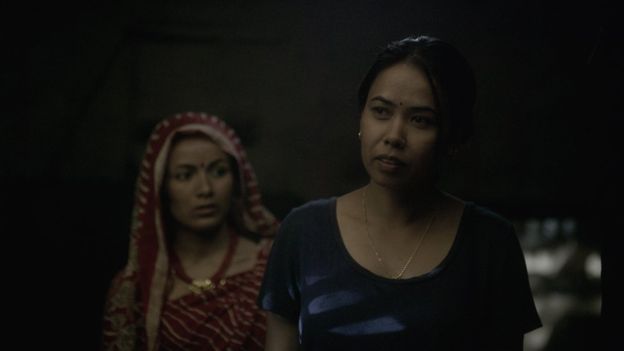
Little wonder that his estranged wife, Durga, tries her best to get him to sign documents saying he is Pooja’s father. Durga has already fallen foul of village customs by touching the dead body of her father-in-law. That is not deemed acceptable, because she comes from a low social caste, but she does not care. Asha Magarati, who plays her, says Durga shows that even the civil war, which “took thousands of lives and disabled and displaced many more”, might have a silver lining.
“Because of war, gender role in our society has changed for good,” she said. “Because men went to fight against regime or for regime, women like Durga were forced to take care and responsibility… Durga stands for post-war generation of strong women in Nepali society, at least for me.”
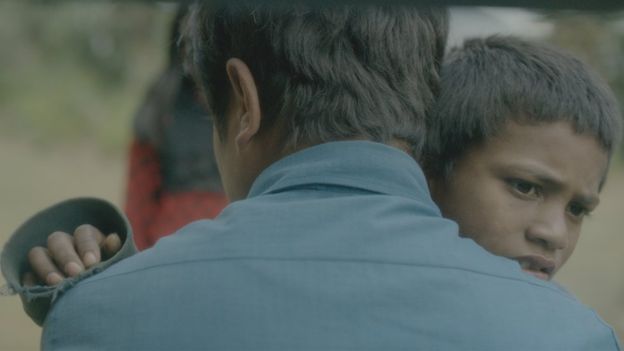
Rauniyar – whose previous film, Highway, examined Nepal’s culture of political strikes – said that in White Sun he wanted to look at the legacy of the war, but not in a hopeless way. Instead, he wanted to bring three generations together in his characters, “force them to converse, and see what beautiful can happen”.
His symbolism is ambitious: the deceased man’s body is a metaphor for the old constitution and royal rule. Consigning it to the past, to history, is difficult. “The film’s characters struggle to get the old man’s corpse out of the house,” Rauniyar said. “They choose to make life harder on themselves. Whether it’s small issues or bigger political issues like our constitution, we don’t seem to look for the logical path.”
But the film, infused with pathos and humour amid darkness and some violence, does not feel didactic. In his quest to bury his father, Chandra knocks on many doors. It all ends with a twist.
By Charles Haviland

